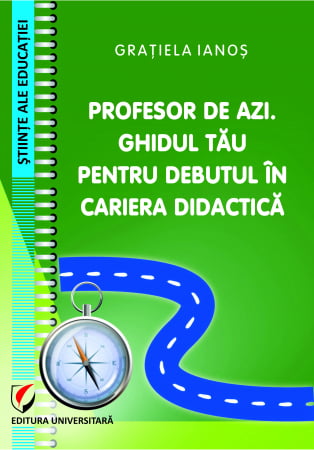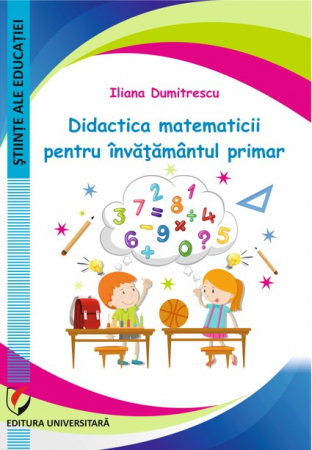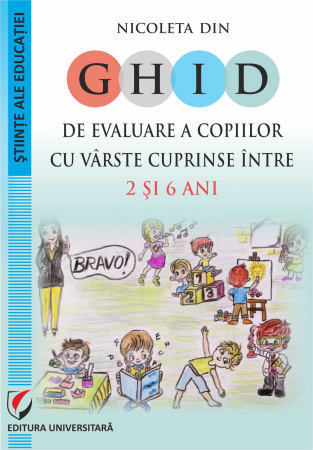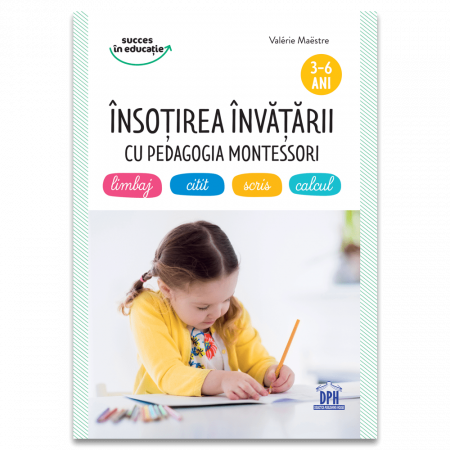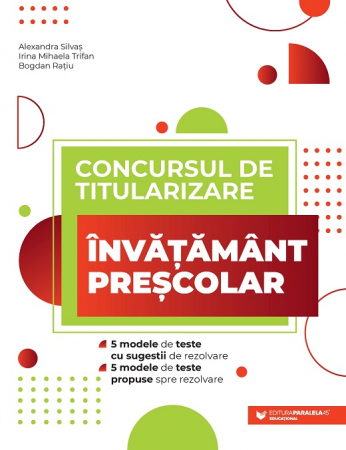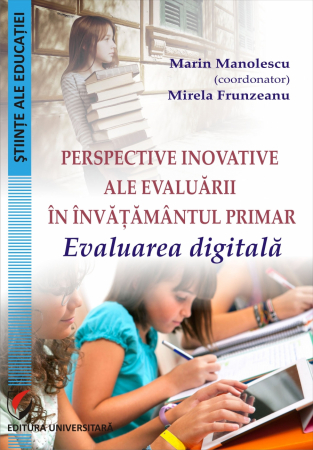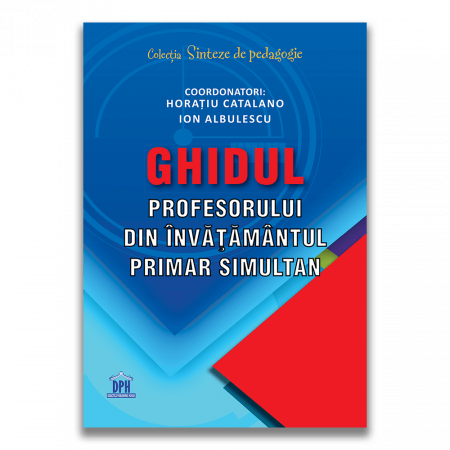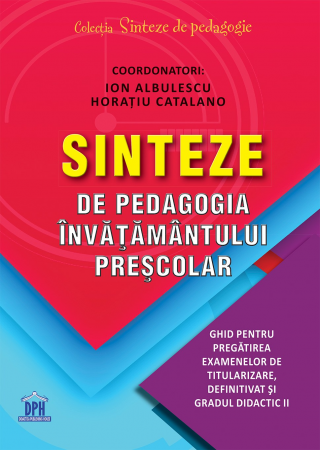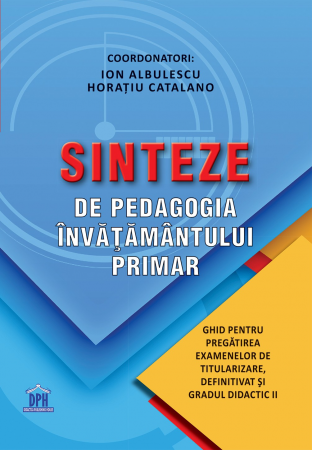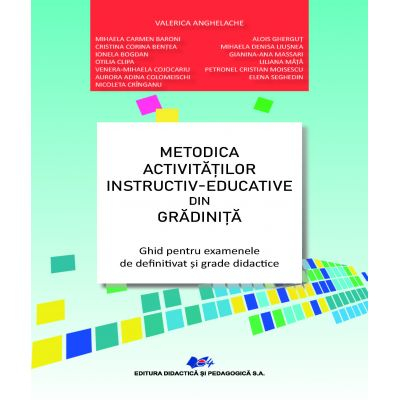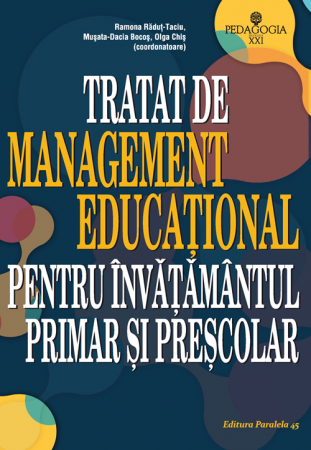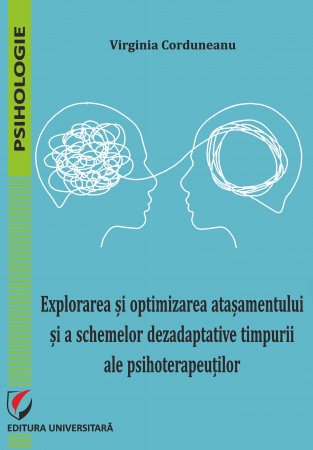Manuscript proposals: info@editurauniversitara.ro / 0745 204 115 //// Tracking orders Individuals / Sales:0745 200 718 / 0745 200 357 Orders Legal entities: 0721 722 783
Publisher: Editura Universitara
Author: Antoaneta Firuta Tacea, Maria Goga
Edition: I
Pages: 90
Publisher year: 2022
ISBN: 978-606-28-1135-8
DOI: 10.5682/9786062811358
Product Code:
9786062811358
Do you need help?
0745 200 718
/
0745 200 357
- Description
- Download (1)
- Authors
- Content
- More details
- Reviews (0)
Personal development, at the university level, is a set of activities that support the student's training and are tailored to his needs, both personal and professional. Self-knowledge, followed by planning and learning management, can be brought together in a complex, integrative project, to which the student himself contributes, but also all those interested in the smooth running of academic life.
This volume only aims to point out some of the specific problems of supporting students, at the university level, for personal development, not to exhaust the mechanisms and resources needed in such an endeavor.
This volume only aims to point out some of the specific problems of supporting students, at the university level, for personal development, not to exhaust the mechanisms and resources needed in such an endeavor.
-
Postures of student development
Download
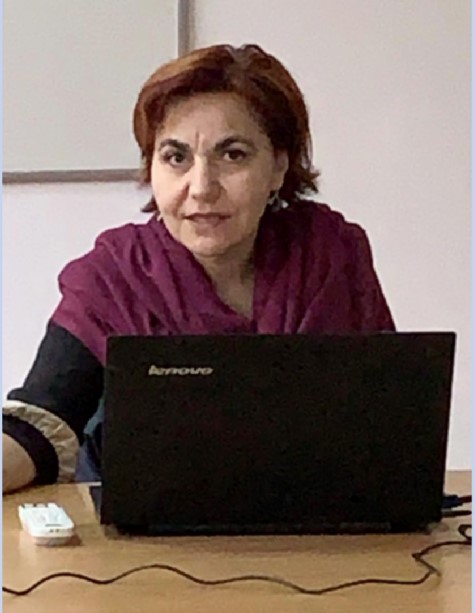
ANTOANETA FIRUTA TACEA
University lecturer and director of the Department of Educational Sciences, Faculty of Psychology and Educational Sciences, University of Bucharest, expert in curriculum design and evaluation, coordinator of working groups, educational projects and strategies, at local, national and international level.
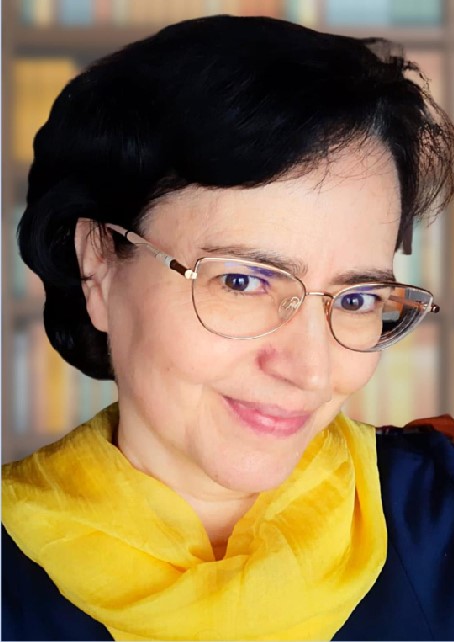
MARIA GOGA
University lecturer, Department for the Training of Teaching Staff, Technical University of Constructions Bucharest, author of numerous international articles in the field of educational sciences and guest professor at various universities in Africa (Ghana, Zambia, Nigeria), contributing to the opening of master's or doctorate programs in within these universities.
INTRODUCTION / 7
CHAPTER I: PERSONAL DEVELOPMENT PLANNING PROGRAM FOR STUDENTS / 9
I.1. Personal development planning program for students (PDP) - conceptual boundaries / 9
I.2. International models of programs of personal development planning (PDP) / 13
I.2.1. Career planning program (Stenden University) / 13
I.2.2. Track and Connect Program (Sydney University) / 14
I.2.3. Personal development plan based on professional experience (Coventry University) / 15
I.2.4. LEARN Program (USA) / 15
I.2.5. PDP (Australia) / 16
I.2.6. PAL Program (University of Minnesota) / 16
I.2.7. Personal development program (University of Central Lancashire) / 17
I.2.8. Beastudi Etos - Program for students with financial problems (Indonesia) / 18
I.2.9. Personal development program (Open University – Netherlands) / 18
I.3. Personal development planning - an integral part of the personal development planning program (PDP) / 20
I.4. The benefits of personal development planning programs / 23
I.5. Actors involved in student development / 24
I.6. Elements of the PDP programs found in universities / 26
I.6.1. Counseling and career guidance centers in universities - International models / 26
I.6.2. Counseling services in universities in the European space - short x-ray / 32
I.6.3. Career counseling and guidance centers in Romania / 34
I.6.4. Mentoring programs / 36
I.6.5. The national project ROSE / 37
I.6.6. The personal development planning program (PDP) - a possible solution for reducing dropouts from Romanian universities? / 44
CHAPTER II: ROMANIAN INITIATIVES REGARDING A PERSONAL DEVELOPMENT PROGRAM FOR STUDENTS / 50
II.1. The coordinates of the research regarding the personal development of students / 50
II.2. Possible program for planning the personal development of students / 54
II.3. Curriculum design management elements for a personal development planning program (PDP) for students / 79
CHAPTER III: CONCLUSIONS / 83
BIBLIOGRAPHY / 87
CHAPTER I: PERSONAL DEVELOPMENT PLANNING PROGRAM FOR STUDENTS / 9
I.1. Personal development planning program for students (PDP) - conceptual boundaries / 9
I.2. International models of programs of personal development planning (PDP) / 13
I.2.1. Career planning program (Stenden University) / 13
I.2.2. Track and Connect Program (Sydney University) / 14
I.2.3. Personal development plan based on professional experience (Coventry University) / 15
I.2.4. LEARN Program (USA) / 15
I.2.5. PDP (Australia) / 16
I.2.6. PAL Program (University of Minnesota) / 16
I.2.7. Personal development program (University of Central Lancashire) / 17
I.2.8. Beastudi Etos - Program for students with financial problems (Indonesia) / 18
I.2.9. Personal development program (Open University – Netherlands) / 18
I.3. Personal development planning - an integral part of the personal development planning program (PDP) / 20
I.4. The benefits of personal development planning programs / 23
I.5. Actors involved in student development / 24
I.6. Elements of the PDP programs found in universities / 26
I.6.1. Counseling and career guidance centers in universities - International models / 26
I.6.2. Counseling services in universities in the European space - short x-ray / 32
I.6.3. Career counseling and guidance centers in Romania / 34
I.6.4. Mentoring programs / 36
I.6.5. The national project ROSE / 37
I.6.6. The personal development planning program (PDP) - a possible solution for reducing dropouts from Romanian universities? / 44
CHAPTER II: ROMANIAN INITIATIVES REGARDING A PERSONAL DEVELOPMENT PROGRAM FOR STUDENTS / 50
II.1. The coordinates of the research regarding the personal development of students / 50
II.2. Possible program for planning the personal development of students / 54
II.3. Curriculum design management elements for a personal development planning program (PDP) for students / 79
CHAPTER III: CONCLUSIONS / 83
BIBLIOGRAPHY / 87
Personal development - a concept heard more and more often among students, teachers, counselors, in books, in articles, in the mass media. Is this concept really that important? If so, what should we know about him? When should personal development begin? What are its basic elements? Is it a short or long-term process? Are there socio-educational contexts that require to a greater extent counseling/support for students for personal development and career guidance, such as during the Covid-19 pandemic? Here are some questions that could cross the thinking of high school students, students, and why not, teachers, mentors, counselors, decision-makers in education.
Personal development, along with professional development, is one of the important aspects in the integration of students, in society and on the labor market.
The training of students, who can keep pace with the permanent changes in the economy and technology, is a priority of our society. Are universities, high schools and schools focused on the personal development of students? Are these institutions limited only to acquired skills or do they develop individuals with autonomous and creative personalities?
Personal development doesn't just mean enriching a person's perspective, it doesn't just mean getting good grades. Personal development is not just one thing, but a group of many things gathered to create a harmonious whole, namely, the personality of the individual. Personal development is knowing what the student is. It includes all the features it has, its strengths and weaknesses, but also the opportunities it has. All of them are useful beyond the gates of the faculty.
Personal development, at the university level, is a collection of activities that form and adapt to the student's needs, both personal and professional. The training is carried out, first, through self-knowledge, planning and management of learning, as well as through development, later, at a professional level.
Universities can support the personal development of students through various programs to integrate them into the learning environment, but also by helping them to orient themselves professionally. A student personal development planning program aims to encourage students to become more efficient, more independent and more confident, to understand how they learn, to place their learning in a wider context and, last but not least, to - and improve general skills for study and career management.
Some questions constitute the basic pillars, following the presentation of which we will better understand what personal development means for students and how it can materialize in concrete, specialized interventions in our universities. Thus, we are interested in the perception of university teaching staff, but also of students, regarding the personal development planning program. What changes would a personal development planning program bring, regarding the reduction of university dropout? What are the factors that influence students' interest and motivation for personal development?
In the first chapter of this work, the theoretical aspects of the personal development planning program for students are presented. The concepts related to personal development planning are defined. International models of personal development used in different universities at the international level are presented, as well as elements of personal development found in different programs, projects or departments in universities that are of real use to students, both to motivate them to know themselves , as well as to orient oneself in the career.
In the second chapter, we present a possible personal development planning program derived from a research carried out in several universities in Romania.
This volume only aims to point out some of the specific problems of supporting students, at the university level, for personal development, not to exhaust the mechanisms and resources needed in such an endeavor.
Authors
Personal development, along with professional development, is one of the important aspects in the integration of students, in society and on the labor market.
The training of students, who can keep pace with the permanent changes in the economy and technology, is a priority of our society. Are universities, high schools and schools focused on the personal development of students? Are these institutions limited only to acquired skills or do they develop individuals with autonomous and creative personalities?
Personal development doesn't just mean enriching a person's perspective, it doesn't just mean getting good grades. Personal development is not just one thing, but a group of many things gathered to create a harmonious whole, namely, the personality of the individual. Personal development is knowing what the student is. It includes all the features it has, its strengths and weaknesses, but also the opportunities it has. All of them are useful beyond the gates of the faculty.
Personal development, at the university level, is a collection of activities that form and adapt to the student's needs, both personal and professional. The training is carried out, first, through self-knowledge, planning and management of learning, as well as through development, later, at a professional level.
Universities can support the personal development of students through various programs to integrate them into the learning environment, but also by helping them to orient themselves professionally. A student personal development planning program aims to encourage students to become more efficient, more independent and more confident, to understand how they learn, to place their learning in a wider context and, last but not least, to - and improve general skills for study and career management.
Some questions constitute the basic pillars, following the presentation of which we will better understand what personal development means for students and how it can materialize in concrete, specialized interventions in our universities. Thus, we are interested in the perception of university teaching staff, but also of students, regarding the personal development planning program. What changes would a personal development planning program bring, regarding the reduction of university dropout? What are the factors that influence students' interest and motivation for personal development?
In the first chapter of this work, the theoretical aspects of the personal development planning program for students are presented. The concepts related to personal development planning are defined. International models of personal development used in different universities at the international level are presented, as well as elements of personal development found in different programs, projects or departments in universities that are of real use to students, both to motivate them to know themselves , as well as to orient oneself in the career.
In the second chapter, we present a possible personal development planning program derived from a research carried out in several universities in Romania.
This volume only aims to point out some of the specific problems of supporting students, at the university level, for personal development, not to exhaust the mechanisms and resources needed in such an endeavor.
Authors
If you want to express your opinion about this product you can add a review.
write a review
Customer Support Monday - Friday, between 8.00 - 16.00
0745 200 718 0745 200 357 comenzi@editurauniversitara.ro
6359.png)
![Postures of student development - Antoaneta Firuta Tacea, Maria Goga [1] Postures of student development - Antoaneta Firuta Tacea, Maria Goga [1]](https://gomagcdn.ro/domains/editurauniversitara.ro/files/product/large/ipostaze-ale-dezvoltarii-studentilor-072164.jpg)
